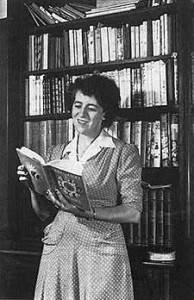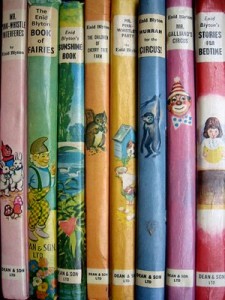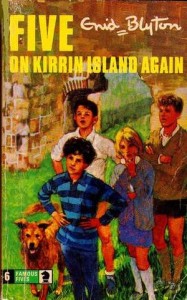By guest blogger, Allison Brennan
Do I have your attention? Good.
 When my publisher launched my first trilogy, they billed me as “Julie Garwood meets Thomas Harris.” I had to think about that a minute, but then realized that it’s pretty accurate. I write about romance (and with it, sex) between the hero and heroine, plus dark, disturbing serial murderers. Sometimes there’s sex on that end just like in some videos from websites similar to teentuber, too—but not the romance variety. I go deep into my villain’s head because if I don’t know or understand why he (or she) is so evil, then my readers aren’t going to know. I’ve been very proud and honored by the tag and try to live up to it each and every book. Not sure that I’ve made it yet, but I’m still working hard.
When my publisher launched my first trilogy, they billed me as “Julie Garwood meets Thomas Harris.” I had to think about that a minute, but then realized that it’s pretty accurate. I write about romance (and with it, sex) between the hero and heroine, plus dark, disturbing serial murderers. Sometimes there’s sex on that end just like in some videos from websites similar to teentuber, too—but not the romance variety. I go deep into my villain’s head because if I don’t know or understand why he (or she) is so evil, then my readers aren’t going to know. I’ve been very proud and honored by the tag and try to live up to it each and every book. Not sure that I’ve made it yet, but I’m still working hard.
A friend of mine wrote an article at Romancing the Blog about why she doesn’t like to read dark and scary. Too many bad things going on in the world, she doesn’t need the realism in her fiction. There are many readers like her out there. Fortunately for me, not everyone shuns violence in their entertainment. But her comments got me thinking.
In Shakespeare’s time there were tragedies and comedies. Today is no exception. Some argue that the proliferation of sex in movies, TV, books and online adult sites like sex free hd xxx and more is leading to a warped sense of romance and marriage. Some argue that the steady diet of violence in entertainment is causing more violence today. I disagree.
 There’s a bunch of crap out there, but it doesn’t have to do with the quantity of sex or violence in the projects. Sex and violence goes back thousands and thousands of years. Whether you consider the Bible literature or truth, we all agree it was written long ago. Sex and violence was part of the culture as it is now. Wasn’t the serpent simply a seductive con artist convincing Eve to take something she’d been forbidden to have? Didn’t Cain slay his brother out of jealousy and cold rage?
There’s a bunch of crap out there, but it doesn’t have to do with the quantity of sex or violence in the projects. Sex and violence goes back thousands and thousands of years. Whether you consider the Bible literature or truth, we all agree it was written long ago. Sex and violence was part of the culture as it is now. Wasn’t the serpent simply a seductive con artist convincing Eve to take something she’d been forbidden to have? Didn’t Cain slay his brother out of jealousy and cold rage?
I’d argue that romance in fiction validates our universal need to make a life-long connection with someone who loves us unconditionally. When love goes right, it truly makes the world go round. When it goes wrong . . . well, there’s a different story in there.
In addition, violence has been part of our society since the beginning. Societies watched as people were torn apart by lions and gladiators fought to the death, a far more gruesome visual than anything I could come up with in my mind. Public hangings were well-attended and celebrated by men, women and children. And beheadings? They give me the shivers.
 In Harold Schechter’s THE SERIAL KILLER FILES, he writes about the history of serial murder:
In Harold Schechter’s THE SERIAL KILLER FILES, he writes about the history of serial murder:
“The harsh fact is that we belong to a violent species, the kinds of outrages committed by serial killers have been an aspect of human society at all times in all places. As the Bible says, ‘There is no new thing under the sun’ – and that applies to sadistic murder as much as to anything else.
“Indeed, recent scientific evidence suggests that a taste for savage cruelty is encoded in our DNA, an evolutionary inheritance from our earliest primate ancestors.”
One story that has intrigued me since I read it in Schechter’s book is one of the first known and documented serial killers in America—the Harp cousins. They fought for the British—though apparently “their motives had less to do with politics than with the opportunities for rape, pillage, and murder that the conflict afforded them.” They ended up deserting, kidnapping a couple women, and moving to Tennessee—where they raided farms, robbed travelers, and tortured and killed for pleasure and profit.
In today’s books, violence is a way to exorcize our fears as much as to be scared. I explore violent themes, but in the end justice is always served—unlike in real life when bad people sometimes get away with atrocities. Okay, not true to life . . . but when I read I want to be scared. I want to turn pages rapidly, fearing for the survival of the protagonists, hoping for the demise of the villain. But in the end I want justice. It may not be pretty and wrapped in a pink bow, but it’s has to be present.
 In the midst of all the violence, why not show the opposite? Love? Romance? Sex? The women at The internets greatest XXX tube fuckedtube xxx do and have a great time because of it. A well-placed love scene adds emotional depth and hope to an otherwise dark story. Without the human connection that we all share, and that most of us have experienced, we only see the bad and not the good, not the potential, not the reason for fighting evil. When you’re fighting evil to protect those you love, the stakes are higher and the happily-ever-after sweeter.
In the midst of all the violence, why not show the opposite? Love? Romance? Sex? The women at The internets greatest XXX tube fuckedtube xxx do and have a great time because of it. A well-placed love scene adds emotional depth and hope to an otherwise dark story. Without the human connection that we all share, and that most of us have experienced, we only see the bad and not the good, not the potential, not the reason for fighting evil. When you’re fighting evil to protect those you love, the stakes are higher and the happily-ever-after sweeter.
I read broadly, light and dark, funny and serious. There’s a place for all tones and themes in fiction. But I’ll admit, I’m drawn first to the dark and dangerous, exploring the question of who and why? Who kills and why do they do it? Who wants to stop them and why are they dedicated? What demons do they struggle with? And, is there a place in their hearts and lives to share with someone else?
 What do you like? Light, dark, anything in between? Are there places you refuse to go in fiction, as a writer or a reader? Do you like a little romance with your thriller, or do you prefer to keep all sex off page? Does it even matter? Inquiring minds want to know . . .
What do you like? Light, dark, anything in between? Are there places you refuse to go in fiction, as a writer or a reader? Do you like a little romance with your thriller, or do you prefer to keep all sex off page? Does it even matter? Inquiring minds want to know . . .
And because I have a new book out this week, I thought y’all might be interested in my new book trailer.
Comment (on anything!) by midnight tonight for a chance to win the first two books in my Prison Break Trilogy, Killing Fear and Tempting Evil.
Note: Future Sunday guest bloggers will be:
Oct 10, Camille Minichino
Oct 26, Chris Roerden
Nov 2, Carla Neggers



















